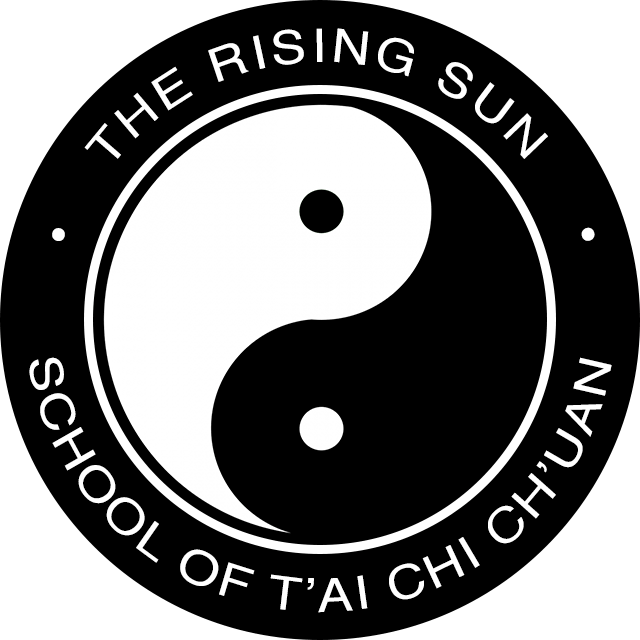A Tai Chi Saying Is Like A Seed
There is a collection of sayings from Mr. Lee Shiu Pak nestled into the narrative tradition of our Tai Chi work.
Mr. Lee was a renaissance man. He was a martial artist, a journalist, a scholar, a painter, and—as these sayings reveal—also something of a philosopher. In my early days at Rising Sun, Sifu used these sayings a lot. Probably the first I ever heard was:
Return with kindly accuracy. Not away from your centre.
We were in boxing class. When we throw a punch, there is a tendency to put our shoulder into it. The fist goes out and brings the shoulder out with it. In Western boxing, this is intentional. You get your shoulder behind the punch to give it more power. And this definitely works. But if your shoulder extends in front of your centre, it can then pull the centre out of balance. If your partner sees this, they can capitalize on it: move out of the way, guide your fist further along its path, and take control of your centre. Not very good for you.
This was the mechanical teaching. And soon it became obvious that there were other layers to it.
∞
Boxing Is Not About Fighting
I was coming to realize that the boxing teachings are not only about physical confrontations. They offer guidance for all kinds of interactions. The form then, as shadow boxing, is also a training ground for ways that we bring ourselves to our relationships.
That first phrase “return with kindly accuracy” rolled over in my mind for years, at first just in boxing, then in the form, and only much later in life. Here’s where it has evolved to for me.
The return lets us know that we are talking about something happening between two people. It also implies a waiting, a response. Tai Chi is a Daoist art, and Daoism is all about waiting until the right moment, only acting when a situation calls us to act. As Tai Chi practitioners, we are not going out looking for fights, neither physical nor emotional. But if a conflict does arise around us and wraps us up in it, then it makes sense to respond in some way.
Having both kindness and accuracy in response to conflict supports a positive or constructive movement in an interaction. Accuracy without kindness can be cutting, blunt, or even hurtful. Sure enough it might end the conflict, but it also may leave wounds in one or all of the people involved. Kindness without accuracy is like the saying, “The road to hell is paved with good intentions.”
Kindness and accuracy together parallels the principles of compassion and wisdom. In certain schools of Buddhism, compassion and wisdom must be cultivated together, like two sides of a coin. These two qualities each have their own merits, but together there is a synergistic effect that creates something new, something greater than the sum of its parts.
∞
Centres
We talk a lot about the centre in our school. We explore an awareness of the lower, middle and upper centres at the beginning of every Foundation class. We learn about moving from the center in movement generation in First Stage review. I definitely think Mr. Lee was talking about this physical center. But I believe he was also talking about integrity. To return not away from your centre is to act in a way that is true to yourself, a response of honesty and conviction.
It’s layered. A practice and a life in Tai Chi Chuan has many layers. The more you explore it with sincerity and effort, the more layers open up to you. I have yet to find a bottom to these layers, a piece of life that these teachings do not touch. Maybe it’s there, but 10 years in I feel that I am trending water in the ocean, aware of all water beneath me, aware of what I am swimming in, but also aware that there is a heck of a lot out there that I have yet to touch.
Mr. Lee learned English as a second language. He was not fluent, but his language was expressive and sharp. When very intelligent people approach a new language, they tend to think carefully about the meaning of these new words, often more carefully than native speakers. Mr. Lee’s sayings are all like this. They are like poems. So much meaning is packed into a few words. There are more interpretations, more applications. All of which are right, and all of which are useful. Please take my reflections as only that. Please take his words into your practice and feel them reverberate in your movements.
When we bow at the end of the form, we remember the people who dedicated their lives to bringing this practice to us. We remember that this tradition echoes and breathes in our bodies now.
Written by Henry Claflin, an instructor at Rising Sun and an acupuncturist with a private practice in downtown Toronto.


